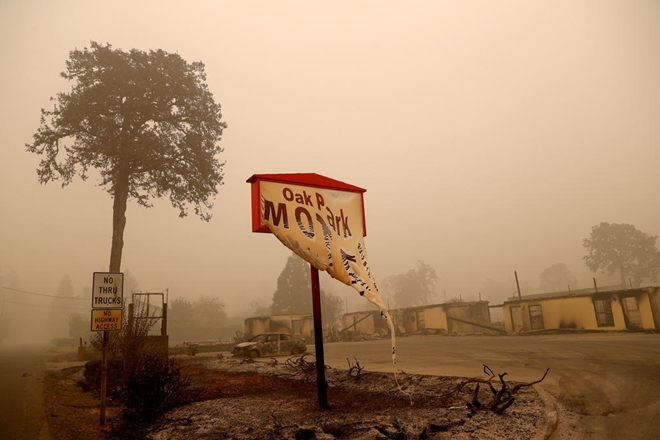Headaches and hospital visits as wildfire smoke blankets the U.S. West
As deadly wildfires rage across the U.S. West, Hunt and others are struggling with some of the world’s worst air pollution.
 |
| Headaches and hospital visits as wildfire smoke blankets the U.S. West |
“I get out of bed to eat and drink water, and go back to bed,” said the 64-year-old retired software engineer, who suffered lung damage in 2017 from a bad case of the flu. “It’s like there’s not enough oxygen in the air.”
Enormous plumes of ash and smoke have spread from the region, where nearly 5 million acres were ablaze on Tuesday, compounding the public health crisis of the coronavirus pandemic.
In California, levels of lung-polluting particulate matter have jumped far beyond the summertime norm, bathing skies in eerie tones of orange and sepia.
Hospitals in hard-hit Oregon report a 10% increase in emergency room visits for breathing problems. Doctors are being inundated with calls from worried patients.
“It’s really putting a burden on our asthmatic patients,” said Dr. Paul Williams, an allergy and immunology specialist in Everett, Washington. “They’re calling us more often and they’re requiring additional medications.”
Air pollution, in the case of wildfire measured by the amount of fine particulate matter swirling in the air, is considered a serious health hazard linked to diseases including asthma, lung cancer, heart disease and early death.
Pollution has hit historic levels in five Oregon cities - Portland, Eugene, Bend, Medford and Klamath Falls, the state said Tuesday.
“I can’t see out my window past two cars,” said Dr. Gopal Allada, a pulmonologist who teaches at Oregon Health & Science University School of Medicine. Allada’s office is swamped with calls from patients experiencing breathing problems and asking for advice on what to do about symptoms that include coughing, wheezing, throat irritation, headache and racing heartbeat.
“We’re just trying to field the calls,” Allada said. “I would have loved to have had more people answering phones.”
In Washington where Hunt lives, the air quality on Tuesday ranged from unhealthy to hazardous at every site monitored by the state.
Residents were stuffing towels in door cracks or sleeping in face masks to cope.
Particulate matter smaller than 2.5 micrometers, known as PM2.5, is the key measure for harmful air pollution. The particles are smaller than the width of a human hair, small enough to burrow deep into a person’s lungs and even find its way into the bloodstream.

